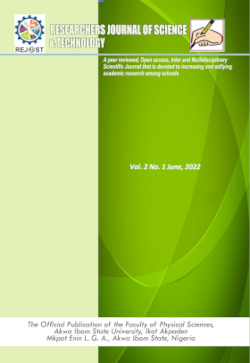Dr. Nyakno J. George
Department of Physics
Akwa Ibom State University, Nigeria
Profile
Reviewers' Responsibilities
Contribution to editorial decisions
The peer-reviewing process aids the editorial team in arriving at the editorial decisions. This may also guide the authors/author in improving on the quality of the article.
Promptness
Any select referee who later feels incompetent to review an assigned paper should notify the editor immediately so that the manuscript can be unassigned properly.
Confidentiality of information
All papers received for review shall be regarded as confidential records and should not be partly or fully discussed or disclosed to others except as authorized by the concerned editor.
Standards of objectivity and conduct
The reviewing exercise shall objectively be conducted with decorum. Personal/destructive criticism of the authors will not be entertained. Referees should express their views explicitly with supporting evidence/arguments.
Acknowledgement of Reference sources
Reviewers should ensure that all relevant published work used in the article have been properly cited and also reflected in the reference section. Cited materials must reflect the arguments advanced. Overlap and similarity of resources under consideration with other published documented resources within the knowledge of the reviewers must be clearly reported to the editor.
Disclosure and conflict of interest
Advantaged information or ideas gained during peer review shall be kept with high level of confidentiality and not used for personal gain. Reviewers should not consider papers, which they have conflicts of interest emanating from collaborative, competitive, or other related links with any of the authors, institutions, colleagues etc. associated with the manuscripts.




